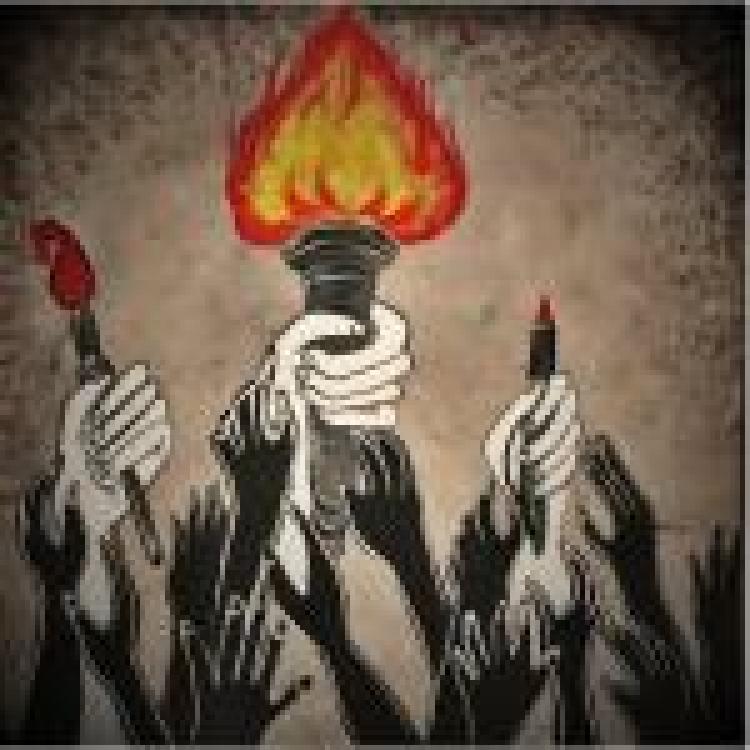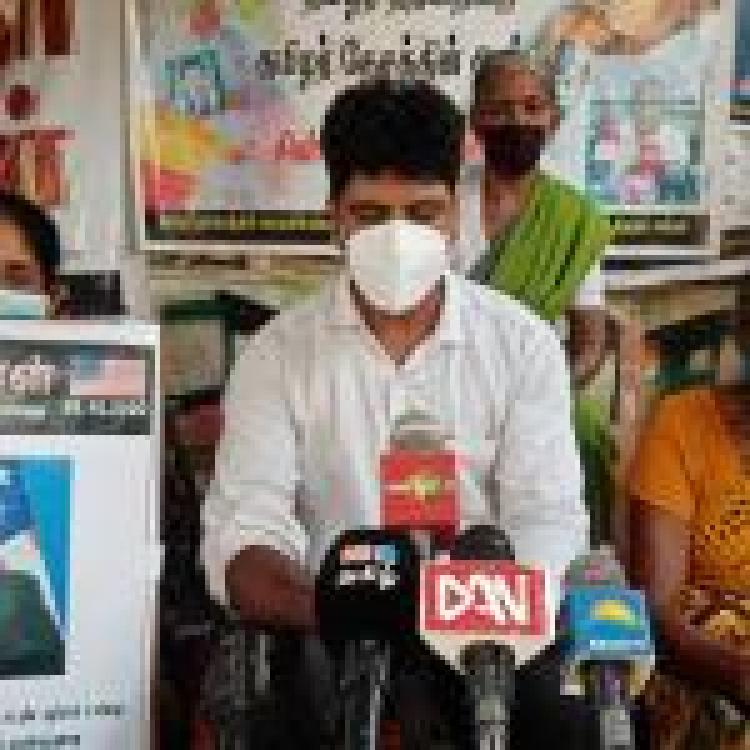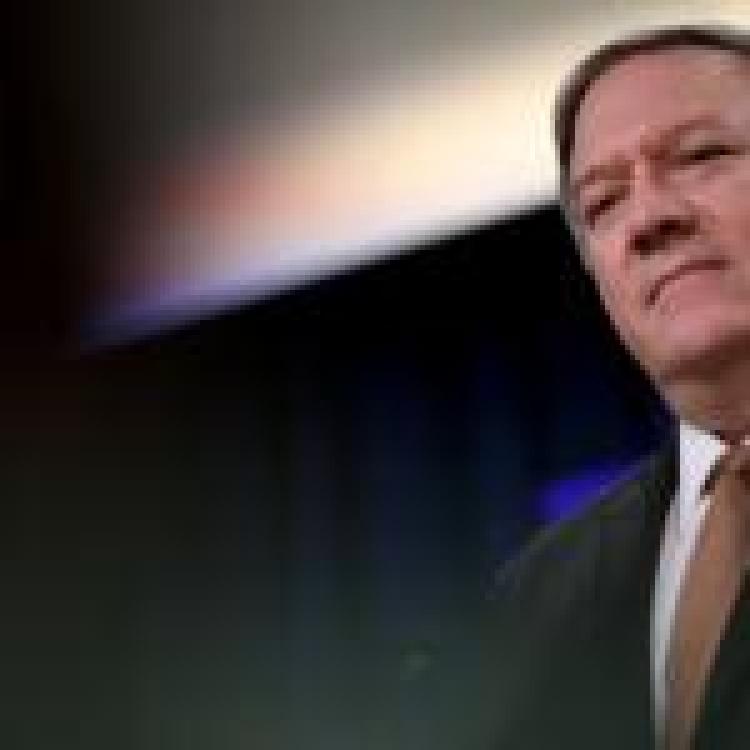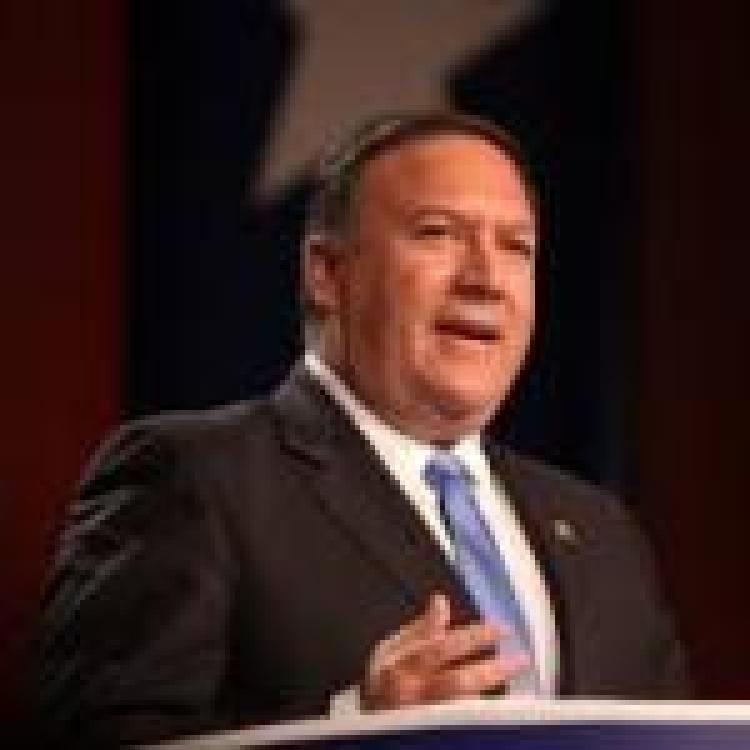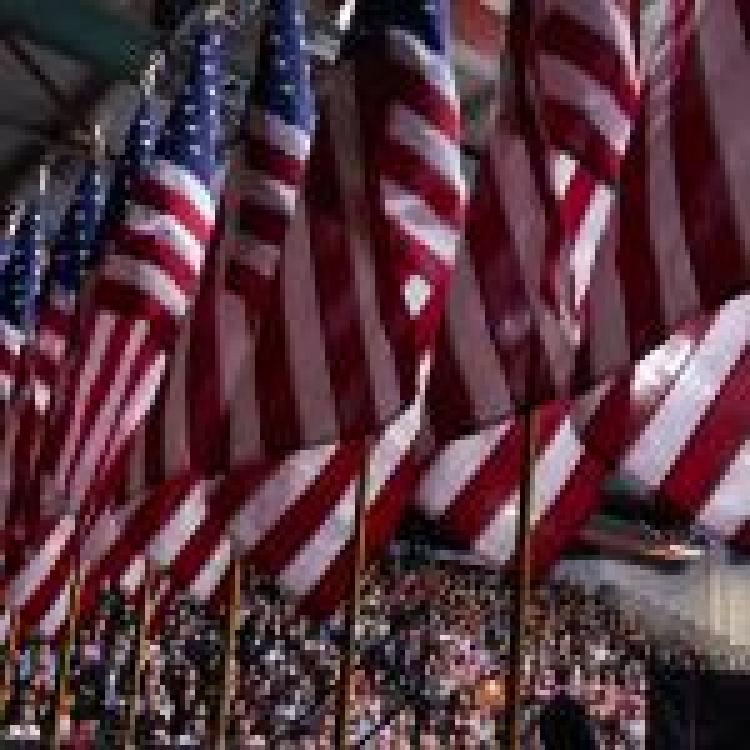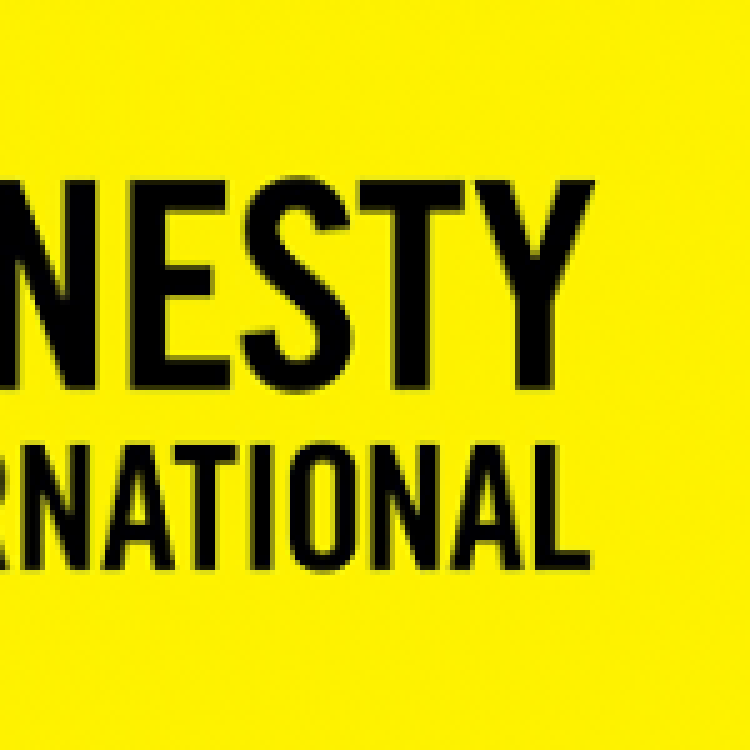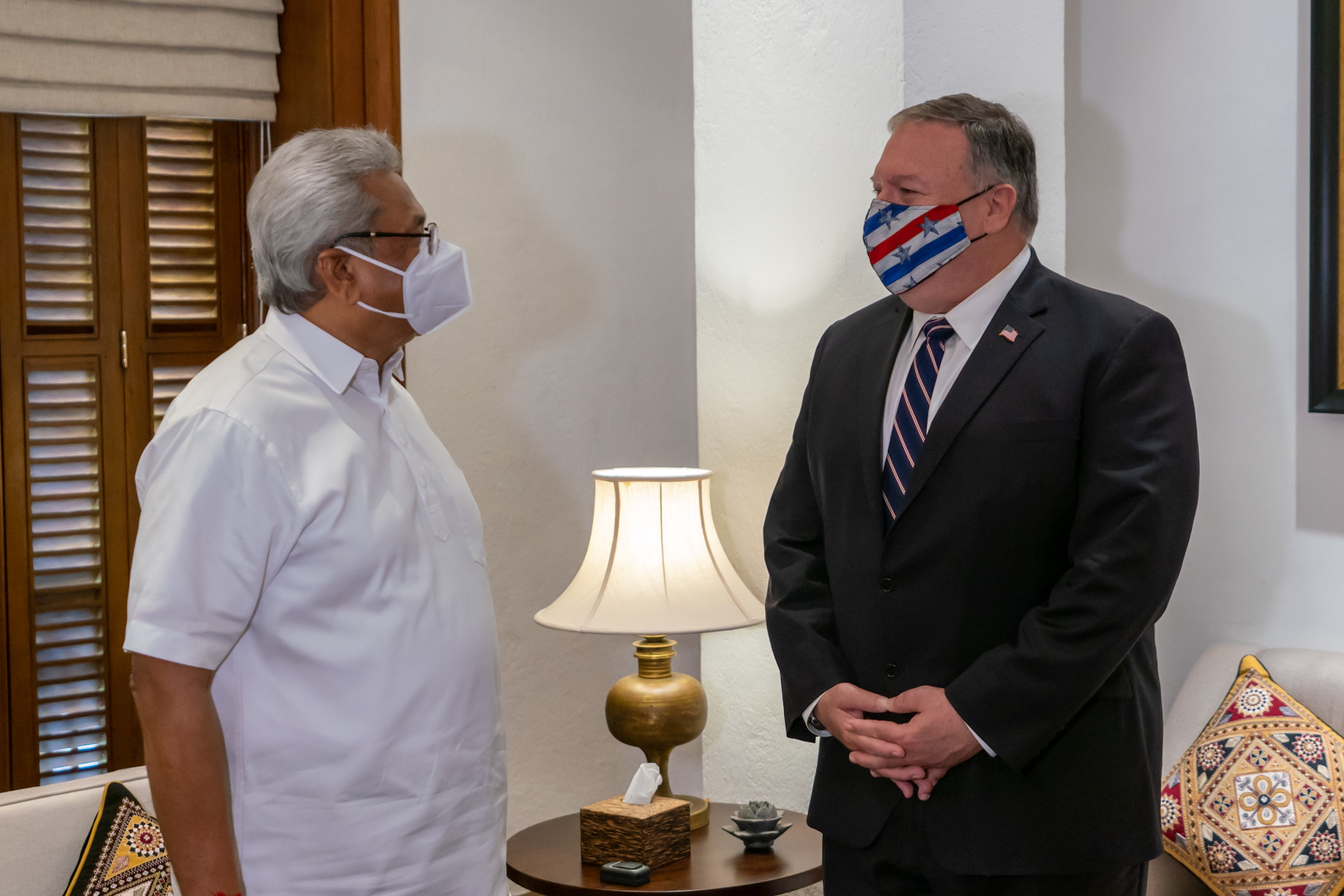
US Secretary of State Mike Pompeo warned of China’s “predator” relationship with Sri Lanka as he held high level meetings with Sri Lankan leaders in Colombo today, with trade, accountability for rights abuses and a US travel ban on army commander Shavendra Silva also discussed.
Pompeo met with Gotabaya Rajapaksa, who himself stands accused of war crimes, where the two discussed “post-pandemic economic recovery and development and the importance of our partnership to bolster sustainable and transparent trade and investment”.
“The United States seeks to strengthen our partnership with democratic, peaceful, prosperous and fully sovereign Sri Lanka,” Pompeo told a press conference after the meeting. “As I conveyed today, good governance, transparency… will attract even more American investment.”
The US Secretary of State also took aim at China’s relationship with Sri Lanka, stating that Beijing’s interest in the region “is quite a contrast”.
“We see from bad deals, violations of sovereignty and lawlessness on land and sea that the Chinese Communist Party is a predator and the United States comes in a different way,” he claimed. “We come as a friend and as a partner.”
Sorry Mr. Secretary @SecPompeo , we're busy promoting #China-#SriLanka friendship and cooperation, not interested in your #AlienVsPredator game invitation. The US can play two roles at the same time as always. pic.twitter.com/9Od8xsUphb
— Chinese Embassy in Sri Lanka (@ChinaEmbSL) October 28, 2020
The Chinese Embassy in Sri Lanka hit back at Pompeo’s remarks tweeting an image for the "Aliens vs Predator" video game, stating it was “not interested in [Pompeo’s] #AlienVsPredator game invitation”.
“The US can play two roles at the same time as always,” it added.
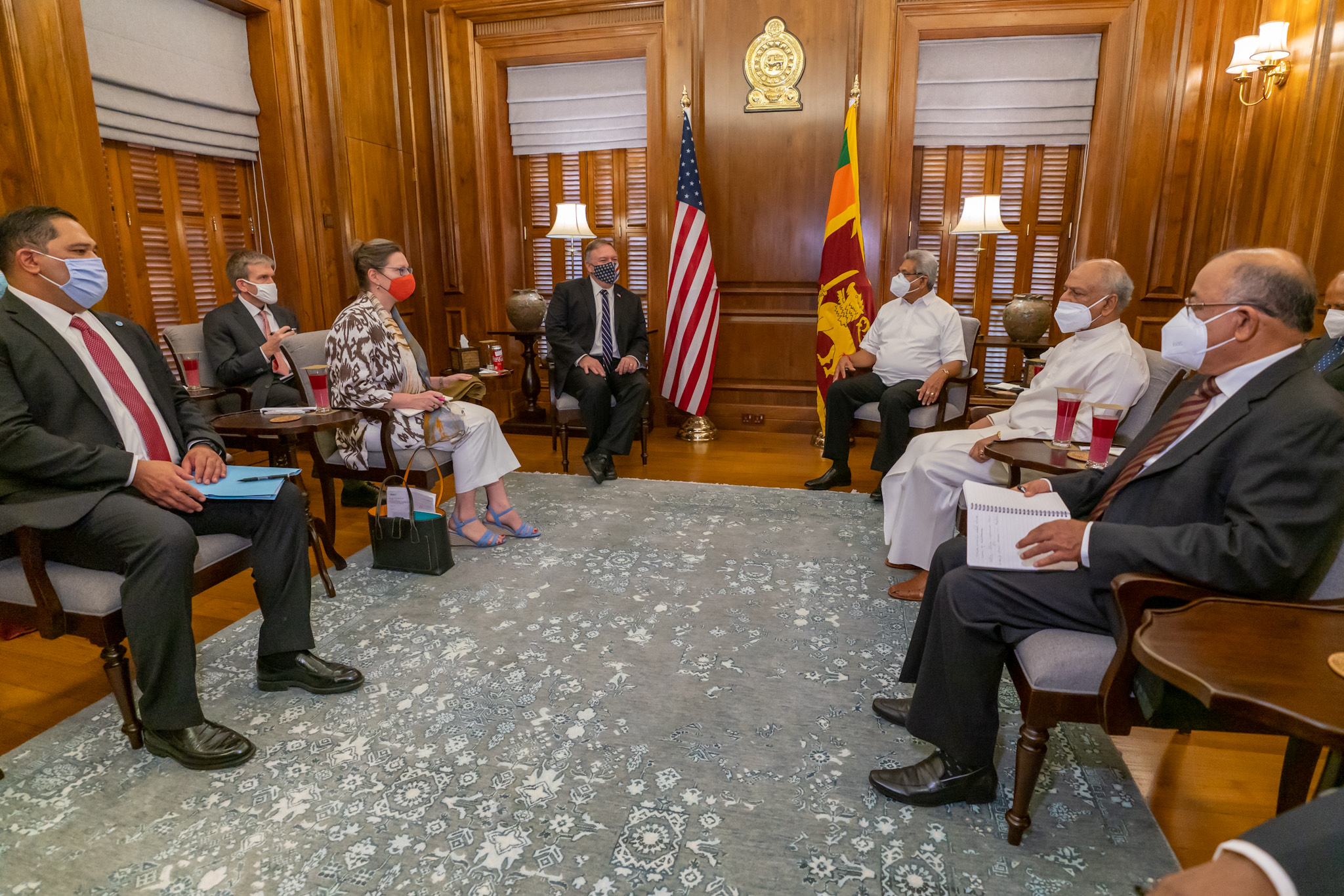
Ahead of his visit, Tamil families of the disappeared had directly appealed to Pompeo to help “alleviate our suffering” in the search for their forcibly disappeared loved ones. "America alone has the powers to find our disappeared children," they said. "We request Secretary Pompeo to use his good offices to alleviate the suffering of the mothers of the disappeared children."
Amnesty International also wrote an open letter to the Secretary of State urging him to address the “deteriorating human rights situation” in Sri Lanka during his visit.
Amongst the topics reportedly discussed was a travel ban that the US had imposed on the head of Sri Lanka’s army Shavendra Silva. Earlier this year, Pompeo’s office had barred Silva and his immediate family from entry to the US “due to his involvement in extrajudicial killings” of Tamils.

Whilst the ban was applauded by human rights activists and Tamils around the world, it caused outrage in the Sinhala south with both government and opposition leaders calling for the sanction to be lifted. Silva told Swarnavahini earlier today that his ban will be discussed with the visiting US official, and a reporter from the station asked Pompeo about the “current status” of the ban on “one of the war heroes in our country”.
“Look it’s a legal process in the United States,” Pompeo responded.
“We will always continue to review it. We want to make sure we get it technically, factually and legally right. We’ll continue to do that.”
“In his victory speech last year, President Rajapaksa stated that he is the president of all citizens, not of only those who voted for him,” Pompeo told the press conference in his address. “And as our two nations move forward, the United States is counting on those words to hold true. We fully expect that Sri Lanka will fulfil its pledges to take meaningful concrete steps to fulfil accountability, justice and reconciliation.”
His comments come after a State Department official confirmed last week that the issues of human rights and justice would be discussed during his visit, noting that Colombo is “at a point to make some choices about where they head”.
Pompeo’s visit, the most senior official to visit the island since then-Secretary of State John Kerry arrived in 2015, came as Sri Lanka’s parliament passed the 20th Amendment to the Constitution last week. The move will see the concentration of power in the executive presidency and has been criticised as moving Sri Lanka even further towards authoritarianism, with even fewer democratic checks and balances.
The State Department said that it would “watch closely developments in Sri Lanka on these fronts” and Pompeo repeatedly highlighted Sri Lanka’s “heritage as the oldest democracy in Asia”.
“Let us all stand together, Mr Minister, shoulder to shoulder,” he added. “We’ve seen some of the good we can achieve for our citizens when we do and let’s do even more together on the strength of our partnership marked by democratic values.”
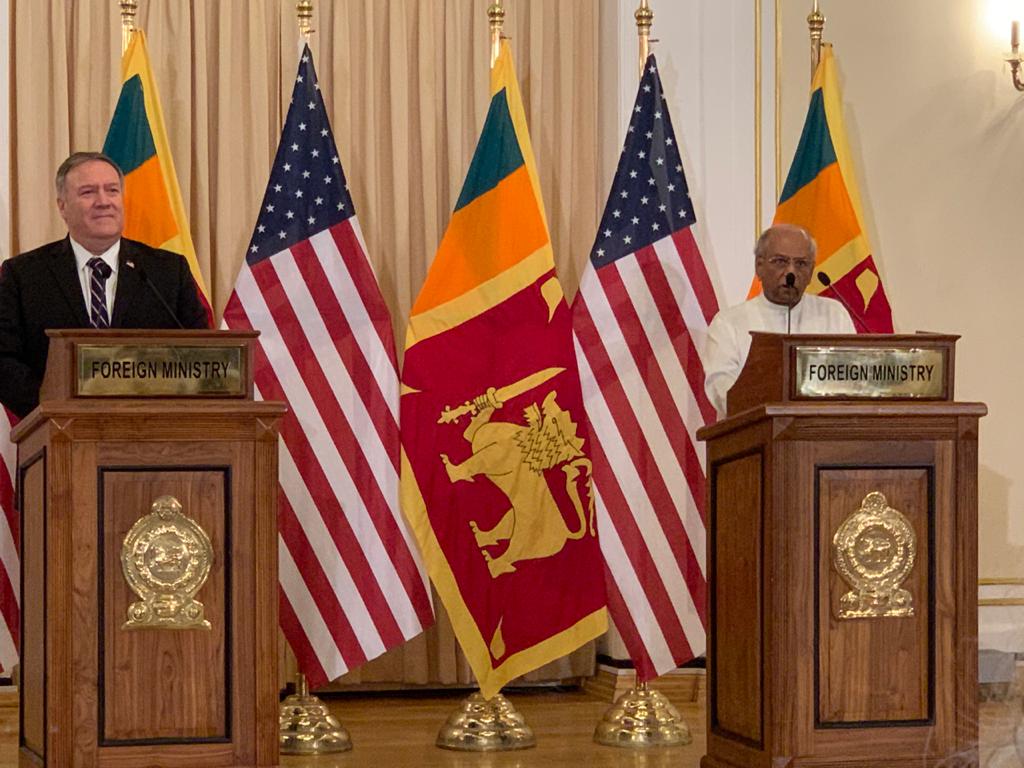
Sri Lanka’s foreign minister Dinesh Gunawardena meanwhile claimed that the island’s “democratic ethos and practice have stood strong”.
“The Sri Lankan people resounding expressly their free choice through two major electoral processes of presidential and parliamentary elections,” he claimed, referring the Rajapaksa victories that swept through the Sinhala south. “These elections reflect the people's mandate to safeguard the unitary state sovereignty, territorial integrity, national security and economic progress.”
Gunawardena also reaffirmed his government’s relationship with the United States, which continues to be Sri Lanka’s largest single market with exports of $3.1 billion in 2019 alone.
“The US has been a friend in assisting Sri Lanka in times of difficulty and we remain deeply grateful for your support,” he added. “Especially, I also extend my sincere thanks and appreciation once again, for proscribing the LTTE terrorist organisation, even before the 9/11 attacks and up until now.”
The relationship between the two governments has continued to grow, despite the lack of accountability and justice for rights abuses, with Pompeo confirming that two coast guard cutters been handed to the Sri Lankan navy and stating he was “proud that Sri Lankan officers received training at US institutions like West Point, my alma matter”.
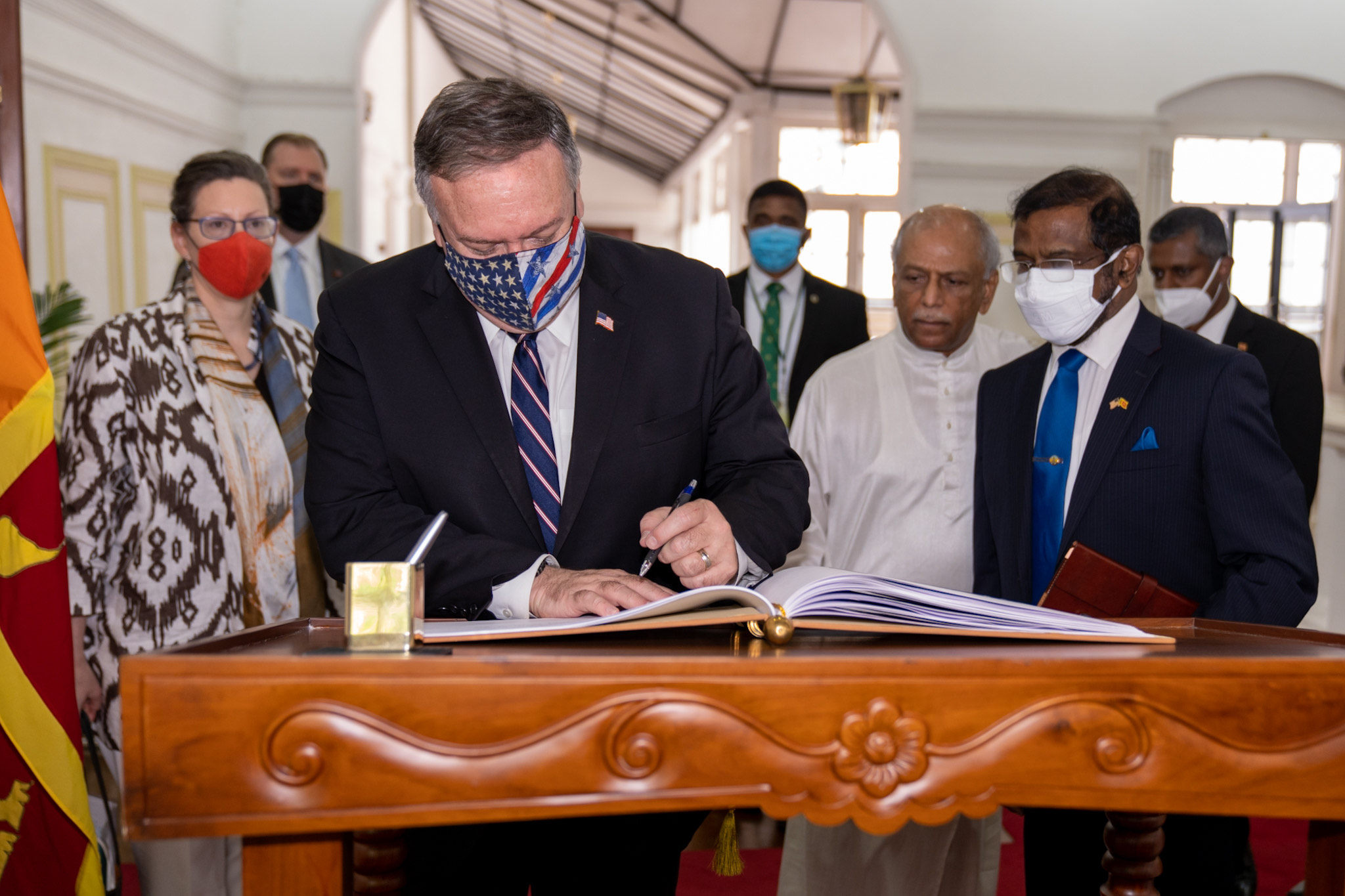
In the North-East, however, Pompeo's remarks were met with disappointment from many Tamils.
"I would want to remind Pompeo that Rajapakses were in power when thousands and thousands of people were killed and most of the majors and generals who supported them are directors and members of various commissions and task forces that are meant to deal with civilian matters,” a Jaffna-based human rights activist said in response to the press conference.
“We welcomed the decision to ban Shavendra Silva from entering the US. The current regime and the military need to know there will be consequences to their past, present and future actions. The survivors completely lost trust in the local procedures of truth and accountability and we hope the US would hold perpetrators accountable in whatever way they can.”
"US now agreeing with Sri Lanka that preserving diversity is about economic growth," tweeted Kumaravadivel Guruparan, the former Senior Lecturer in Law at the University of Jaffna. "No symbolic reference to 'reconciliation' even, leave alone justice, accountability and a political solution."
“We hope that the US will very closely watch the rapidly shrinking space for dissent, addressing human rights violations and the alarming level of involvement of the military in every aspect of civilian life,” the human rights activist concluded. "The US must be mindful and tactical about their engagement with Sri Lanka."
See the full press conference below.

